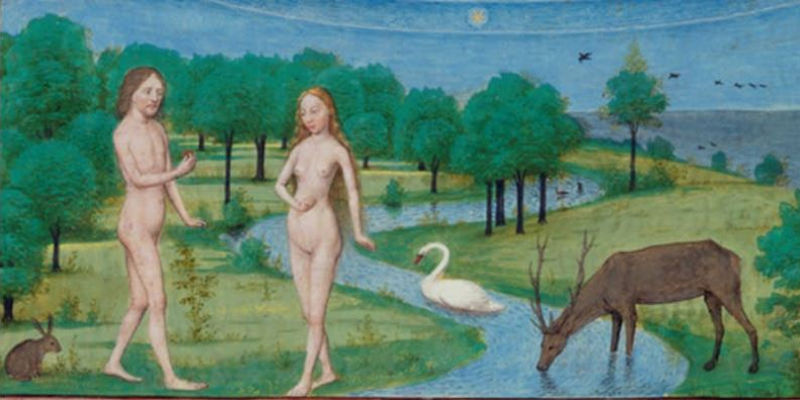
Bending Saint Augustine’s nose. Or, how to authorize sexual pleasure Professor Alastair Minnis
Event details
Centre for Medieval Studies Lecture
St Augustine sought ‘to find his way back to the Garden of Eden and watch our first parents making love’, to quote Stephen Greenblatt. And the Saint imagined that being fruitful and multiplying would have involved a form of robotic, pleasure-free sex. This view is often quoted as if it had passed, uncontested, from one generation of late-medieval theologians to the next. In fact, the schoolmen ‘reverently interpreted’ Augustine’s intellectual legacy, quoting him even as they diverged from his thinking. An authority ‘has a waxen nose, which means that it can be bent into taking on different meanings’, Alan of Lille once remarked. Augustine’s successors did a remarkable amount of bending. They accepted that pleasure would have been experienced by Adam and Eve; for them the issue was, how much? My lecture will consider the logistics of that radical move. A move which, I believe, constitutes a quite significant shift within the history of emotion. Placing physical desire in Paradise was to affirm its fundamental and foundational goodness. It may have been corrupted by the Fall but it was not a product of the Fall. That remarkable claim has been obscured by centuries of struggle to theorize the appropriate place which sexual pleasure should occupy in marriage.